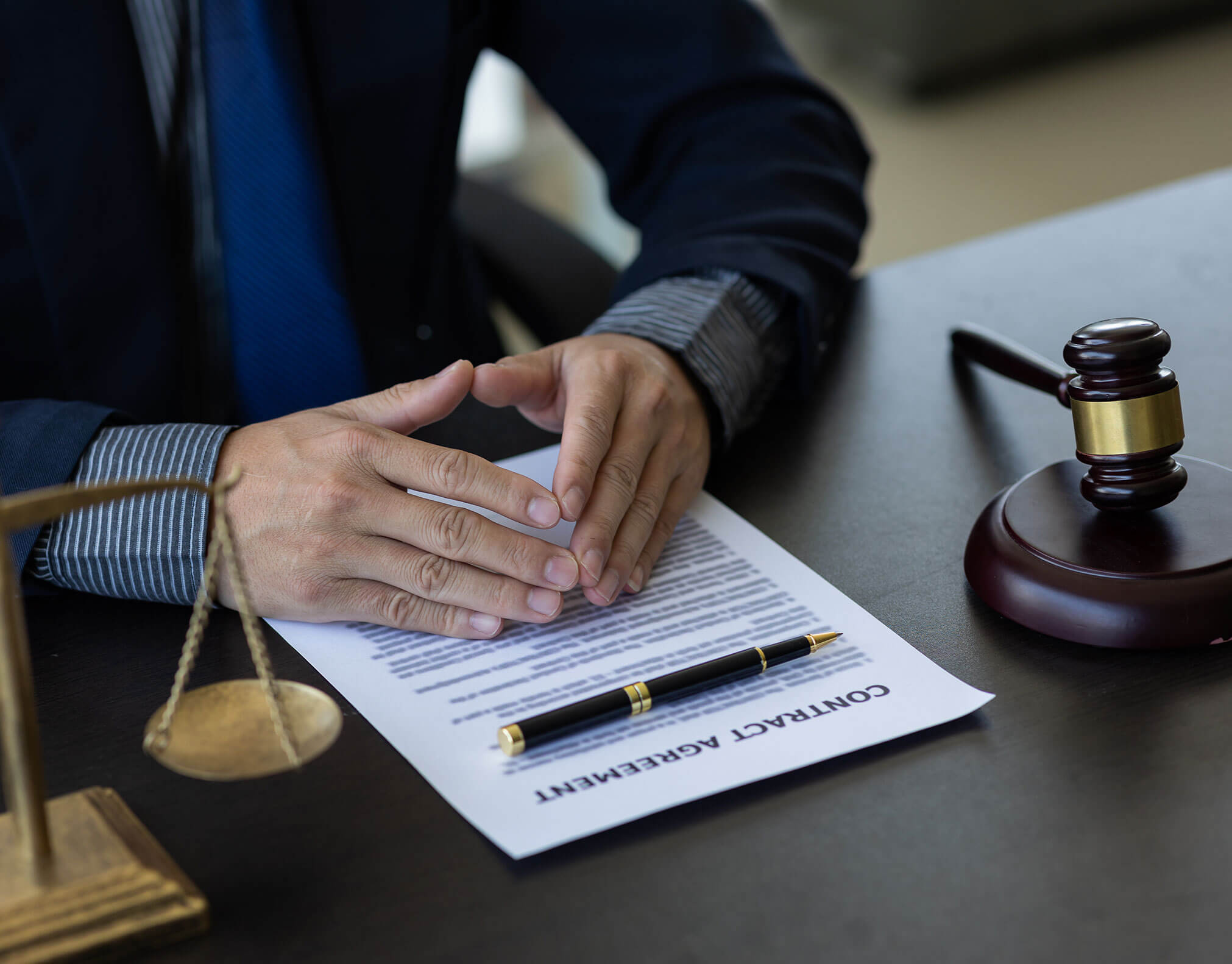How Much Is the Average Settlement for a Back Injury?
Calculating your potential case value can be daunting when you’ve sustained a back injury in an accident. Understandably, prospective clients want to know how much the average settlement for a back injury is. However, many variables can influence the final figure, creating a wide range of potential outcomes. These factors include the type and severity of your injury, who was at fault (liability), the amount and nature of your damages, insurance policy limits, and the skill and experience of your personal injury attorney.
Back injury settlements are calculated based on the merits of your case. Don’t rely on figures you see online or read in articles that claim to know the average settlement for a car accident back and neck injury. To understand what your case is worth, speak with a skilled personal injury lawyer at Flint Cooper. In the meantime, read on to learn more about the primary factors that impact your potential settlement value.
Injury Type and Severity
Spinal injuries can range from minor strains to life-altering spinal cord damage. The type and severity of your injury will significantly impact your settlement amount. Severe injuries usually lead to larger medical bills, longer recovery times, and potentially permanent disabilities. All these elements can translate to higher potential settlement values.
Consider a severe cervical spine injury from a car accident. The injury victim may require extensive surgery, lengthy physical therapy, and long-term medication. The injury might also affect their ability to work temporarily or permanently, leading to lost wages and diminished earning capacity. Furthermore, severe injuries often cause significant pain and suffering, disrupting the victim’s enjoyment of life. Consequently, cervical spine injury settlement amounts often reflect these elements.
Liability
Determining who was at fault in an accident is critical in assessing your potential settlement. Most states use some version of comparative negligence to adjust an injured party’s compensation if they shared fault for their accident. In pure comparative negligence states, like Kentucky, you can recover a portion of your compensation no matter how great your percentage of fault is. In modified comparative negligence states, you may be barred from recovering compensation if your share of fault exceeds a particular threshold. For example, Texas bars compensation if the accident victim is more than 50% to blame. If you are able to recover, your payment will be reduced based on your degree of fault. For instance, if you are 20% at fault, you can recover only 80% of your total damages.
In “no-fault” states, each party usually turns to their own insurance company for compensation, irrespective of who caused the accident. However, the victim may step outside the no-fault system under certain conditions, such as where they sustained a permanent injury. Such exceptions allow the victim to sue the at-fault party directly.
Understanding these liability rules and their application to your case is critical. Even two similar back injuries can have vastly different outcomes due to liability. That’s why it’s impossible to answer questions such as, How much is the average settlement for a back injury?
Damages
Damages represent the losses you sustain in an accident. You need evidence to prove you deserve financial compensation for your back injury. Damages can be economic or noneconomic. Economic damages represent out-of-pocket costs like medical bills and lost wages. Noneconomic damages, on the other hand, represent intangible losses like pain and suffering, emotional distress, and loss of enjoyment of life.
A comprehensive account of these damages is crucial to fighting for a fair settlement. Keep a meticulous record of all medical expenses, lost earnings, and property damage related to the accident. Your attorney will help you calculate the noneconomic impact of the injury on your life. Has it led to severe pain, depression, or stress in your family relationships? Has it hampered your ability to engage in hobbies, sports, or other leisure activities? The more extensive and well-documented these damages, the stronger your claim.
Insurance Limits
The at-fault party’s insurance policy limits can also significantly affect your potential settlement. If your damages exceed these limits, you may need to explore other avenues for compensation, such as searching for other at-fault parties or filing a claim under your underinsured motorist (UIM) coverage if applicable. These scenarios often involve intricate legal procedures, reinforcing the need for an experienced personal injury attorney.
Your Attorney’s Skill
Your attorney’s skill and experience can greatly influence how much you ultimately recover. A seasoned lawyer can accurately assess your claim, negotiate with the insurance company, and present a compelling case in court if necessary. They know insurance companies’ tactics to minimize your settlement and can effectively counter them.
Some law firms focus on pre-litigation cases rather than spending the time and resources necessary to take one to trial. They might encourage settlement before filing a lawsuit or transfer the case to another firm if it doesn’t settle. While a settlement may be your best option, you want a lawyer who’s willing to fight all the way to trial if necessary. At Flint Cooper, we don’t back down. Numerous favorable verdicts and settlements reflect our unwavering commitment to the pursuit of justice.
Contact a Skilled Personal Injury Lawyer at Flint Cooper
While it’s natural to seek a definitive “average” settlement amount, the reality is that such a figure may not be helpful or applicable to your case. Let us put our 20+ years of experience, dedication, and tenacity to work for you. If you suffered a back injury in an accident, contact Flint Cooper. We’ll review your case to help you determine your injury claim’s potential value and the best course of legal action.
About the author:

Greg Smith
Greg is a personal injury attorney at Flint Cooper, a law firm specializing in complex litigation. Greg specializes in wrongful death, semi-truck accidents, automobile collisions, maritime claims, and many other areas of personal injury. He has extensive experience litigating claims in state and federal courts, as well as administrative agencies.

